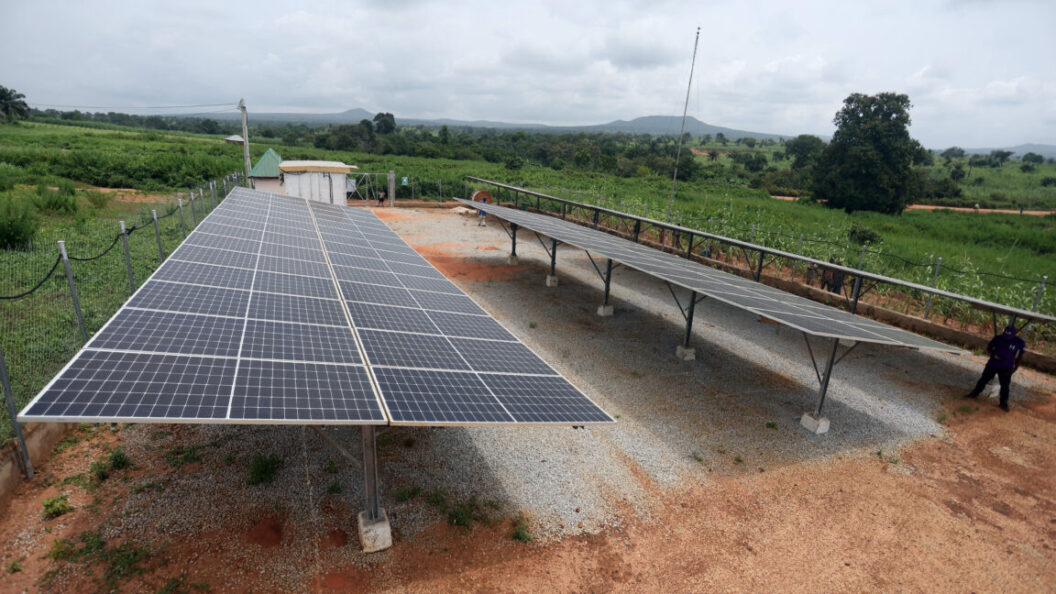Solar Power Revolution in Nigeria: A Path to Energy Access and Economic Growth
As the world grapples with the urgent need for sustainable energy solutions, Nigeria is standing out as a leader in solar power implementation. With an estimated 600 million Africans lacking reliable electricity, Nigeria has embraced solar mini-grids as a practical approach to tackle this pressing issue and enhance economic opportunities for millions of its citizens.
The Solar Mini-Grid Initiative
In Nigeria, solar mini-grids—decentralized installations capable of generating up to 10 megawatts of electricity—are becoming increasingly popular. These systems can power over 1,700 American homes and can be deployed in remote areas, making them an ideal solution for rural electricity access. The Nigerian government has established policies aimed at attracting investments in the renewable energy sector, positioning the country as a model for mini-grid development across Africa.
Currently, the country has successfully installed nearly 120 mini-grids, impacting about 50,000 households and reaching around 250,000 people. Rolake Akinkugbe-Filani, an energy expert and managing director at EnergyInc Advisors, remarked, “Nigeria is actually like a poster child for mini-grid development across Africa.” Her statement underscores Nigeria’s potential to influence energy development strategies in neighboring nations.
Economic Impact Beyond Energy Access
While the environmental benefits of transitioning to renewable energy are significant, for many Nigerians, the immediate concern is enhancing local economies. For example, communities benefiting from mini-grids have seen substantial improvements in business activities. Ifeoma Malo, founder of Clean Technology Hub, noted that the implementation of solar mini-grids has "completely transformed those communities." This economic transformation underscores how affordable, reliable electricity can drive community development and improve livelihoods.
Broader African Energy Landscape
Despite being minimal contributors to global carbon emissions—accounting for less than 5 percent—African countries face pressure to adopt renewable energy solutions. Many experts, including Malo, argue that developed nations—such as the United States, China, India, and members of the European Union—should lead the charge in reducing fossil fuel reliance. However, several African nations have set ambitious renewable energy goals and are exploring diverse energy sources.
Countries on the continent have begun to utilize locally abundant options, like geothermal power and hydropower. For instance, geothermal energy contributes to nearly half of Kenya’s electricity generation, while countries like the Democratic Republic of Congo, Ethiopia, and Uganda rely on hydropower for over 80 percent of their energy needs. This varied approach not only addresses energy deficits but also aligns with commitments to sustainable development.
Moving Forward: Challenges and Opportunities
While Nigeria’s mini-grid project showcases the potential of localized energy solutions, expanding this initiative across Africa will require substantial investment and ongoing governmental support. Capitalizing on Nigeria’s model may encourage other nations to explore similar paths in renewable energy development. However, challenges remain, including infrastructure limitations, financing constraints, and policy inconsistency that can hinder project implementation.
Moreover, the global energy transition poses risks for countries heavily reliant on fossil fuels. As alliances shift and environmental pressures mount, ensuring that communities are not left behind in this transition is vital. Balancing the need for immediate economic growth with long-term sustainability goals will require careful planning and coordination across various stakeholders.
Conclusion: A Beacon of Hope for Energy Access in Africa
Nigeria’s advancements in solar mini-grids present a promising blueprint for energy access and economic revitalization across Africa. As more countries observe and adopt these successful practices, they have the potential to contribute not only to regional energy security but also to global efforts in combating climate change. The intersection of energy access and economic development is critical for achieving sustainable growth and enhancing the quality of life for millions in Africa. By embracing renewable solutions, countries like Nigeria are not only addressing immediate energy needs but are also setting the stage for a greener, more sustainable future.









